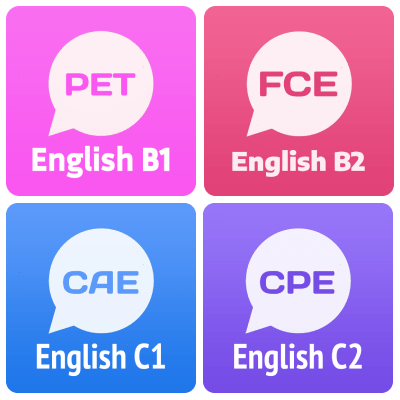Past Perfect Continuous or Past Simple?
This comparison helps in choosing between Past Simple (short actions) and Past Perfect Continuous (longer, ongoing past actions before another event).
Back
Learn how to choose between the Past Perfect Continuous and the Past Simple
When Should I Use The Past Simple Tense?
Finished actions, states or habits in the past.
1. We use it with finished actions, states or habits in the past when we have a finished time word (yesterday, last week, at 2 o'clock, in 2003).
- I went to the cinema yesterday.
- We spent a lot of time in Japan in 2007.
2. We use it with finished actions, states or habits in the past when we know from general knowledge that the time period has finished. This includes when the person we are talking about is dead.
- Leonardo painted the Mona Lisa.
- The Vikings invaded Britain.
3. We use it with finished actions, states or habits in the past that we have introduced with the present perfect or another tense. This is sometimes called 'details of news'.
- I've hurt my leg. I fell off a ladder when I was painting my bedroom.
- I've been on holiday. I went to Spain and Portugal.
4. For stories or lists of events, we often use the past simple for the actions in the story and the past continuous for the background.
- He went to a café. People were chatting and music was playing. He sat down and ordered a coffee.
Unreal or imaginary things in the present or future.
5. We use the past simple to talk about things that are not real in the present or future. So we use it with the second conditional and after words like 'wish'.
- If I won the lottery, I would buy a house.
- I wish I had more time!
When Should I Use The Past Perfect Continuous Tense
1. Something that started in the past and continued up to another action or time in the past. The past perfect continuous tells us 'how long', just like the present perfect continuous, but this time the action continues up to a point in the past rather than the present. Usually we use 'for + time'. (We can also use the past perfect simple here, often with stative verbs.)
- She had been working at that company for a year when she met James.
- I'd been walking for hours when I finally found the house.
- We'd been living in Berlin for three months when we had to leave.
2. Something that finished just before another event in the past. This is usually used to show a result at a time in the past. It's very similar to the present perfect continuous, but the action finishes before another time in the past, rather than finishing before the present.
- The pavement was wet, it had been raining. (The rain had finished before the time I'm describing in the past. We could see the result of the rain.)
- The children had been playing and so the room was a mess!
- I'd been working before I saw you and that's why I was really tired.
